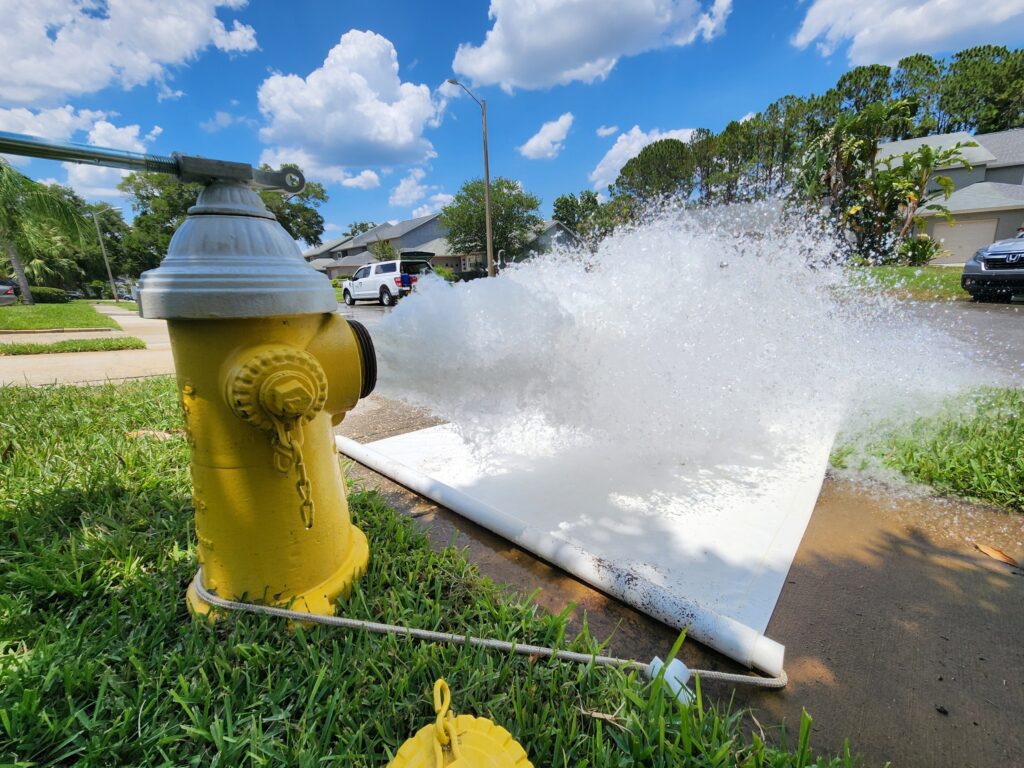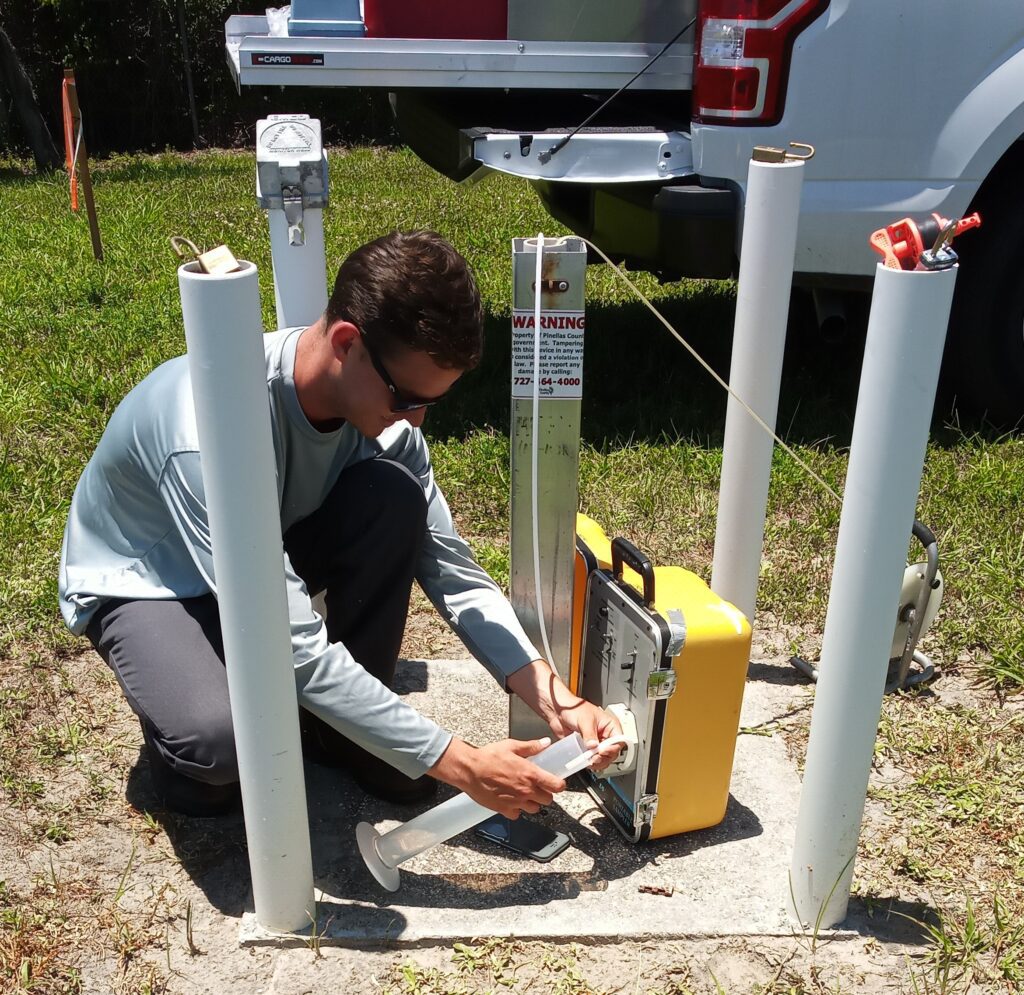Pinellas County Utilities Water Quality Monitoring
Pinellas County Utilities recognizes the tremendous responsibility we have to provide you with high-quality drinking water 24 hours a day, 365 days a year. Water is vital not only to our health and well-being, but to our economy and way of life. Our Water Quality Monitoring staff is dedicated to providing the following services and programs to continually improve the water treatment process and protect our water resources.
Flushing Program

Flushing water mains involves running water at a high speed through hydrants and dead-end blow-offs to improve water quality and maintain infrastructure. Flushing provides a variety of benefits, including:
- Maintaining system infrastructure by operating fire hydrants regularly to ensure they work properly and have proper flow in case of a fire emergency.
- Removing sediment, which improves taste, odor and color.
- Removing biofilm to prevent bacterial growth.
- Reducing water age by bringing fresh water into areas with low demand to maintain proper disinfectant residual.
Potable Water Testing
Our specialists collect samples throughout the county every day, which are then analyzed to ensure we comply with all state and federal drinking water standards. Each year, we collect more than 10,000 water samples and conduct more than 69,000 water quality tests in our own State-certified labs to ensure your drinking water meets or exceeds state and federal standards. Learn more about this by reviewing our annual Consumer Confidence Reports.
Water Maintenance Program
Pinellas County Utilities temporarily changes its water disinfection process from chloramine to chlorine twice a year to improve water quality by reducing the potential for coliform or other types of bacteria from forming in the water delivery system and to minimize the potential for any future problems in the water system. Learn when these temporary switches will take place on our Water Maintenance Program webpage.
Groundwater Testing

The surficial aquifer, or the uppermost layer of groundwater, is essential for water supply, irrigation and maintaining the health of ecosystems. While they are easily recharged by rainfall and surface water, this can make them vulnerable to contamination. Our team samples groundwater monitoring wells to ensure the reclaimed water you’re using to irrigate your lawns and landscaping is not causing adverse effects.
Industrial Pretreatment Program
The Industrial Wastewater Pretreatment Program protects our waterways by controlling how wastewater is disposed into city and county sewer systems and treatment facilities. All industrial and non-domestic wastewater sources within the South Cross Bayou Water Reclamation Facility, the William E. Dunn Water Reclamation Facility and the City of Pinellas Park systems must complete a survey to determine if an Industrial Wastewater Permit is needed.
Our specialists monitor these industries to ensure they are appropriately removing or reducing pollutants from their wastewater before discharging it into Pinellas County’s sanitary sewer collection system, where pollutants may cause harm to the infrastructure and water reclamation facilities and eventually damage the environment.
Commercial Grease Management Program

Did you know fats, oils and grease (FOG) from both residential and commercial drains are one of the leading causes of sanitary sewer overflows? Our team monitors food service establishments through our Commercial Grease Management Program to reduce the amount of FOG entering the sanitary sewer collection system and causing sewer pipes to become clogged, which can lead to overflows and back-ups in homes and neighborhoods.
Private Sewer System Program
The Private Sewer System Program team inspects and permits privately owned sanitary sewer systems to ensure they are in good, working condition. The goal of this program is to reduce the amount of Inflow & Infiltration (I&I) and operation/maintenance-related sanitary sewer overflows from private sewer systems and the impact they have on the County sewer system. Learn more about this program and our other private sewer system initiatives on our Private Sewer System Program webpage.
Mitigating the Effects of SSOs
When an SSO occurs, our team monitors the flow and samples/analyzes any impacted surface water bodies for pollutants. We report any overflow to the Florida Department of Health and the Florida Department of Environmental Protection to help mitigate the risks associated with adverse effects on the environment and public health.
To help reduce the number of SSOs that occur annually, please refrain from disposing of grease into kitchen drains and wipes into toilets. Grease can be placed in cans or jars to cool and then placed in the trash. Wipes should always be disposed of in trash cans.
Contact Us
Our specialists are here to help answer any questions you may have about these services. You can reach our team at (727) 582-2379.